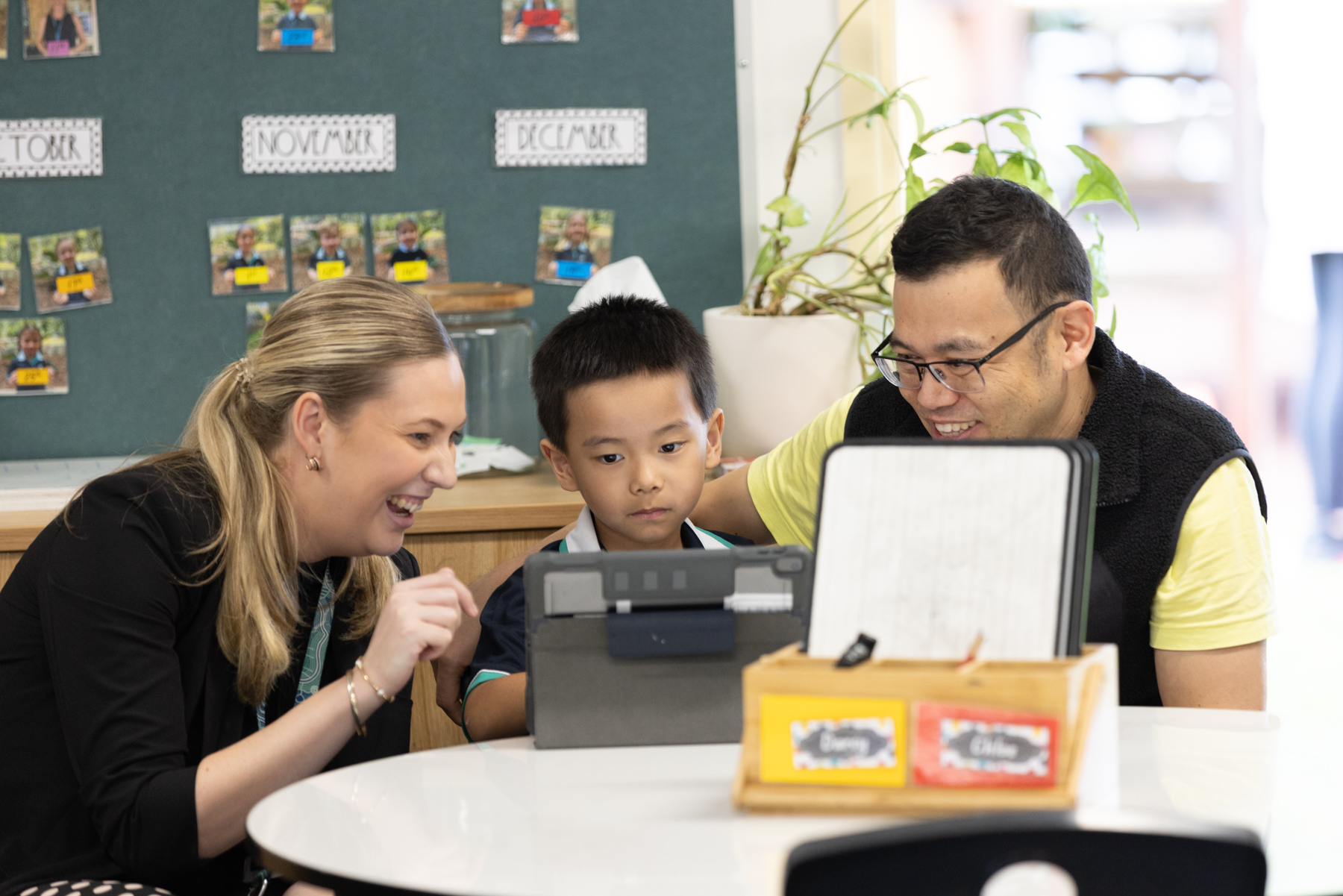Each term, our parents and carers in the Flinders Primary School are invited to step into their children’s classrooms for a “Learning in Action” event to better understand the learning explored and the growth achieved across the term.
This year, our Flinders Learning in Action events follow a refreshed format to make them even more meaningful, interactive and social for our parent community. Each session involves a brief overview by a member of the teaching team or leadership team, sharing insights into the learning focus, the programs and strategies being used in class and the research that informs the practice.
Parents then join the students in the classroom or a learning space for a hands-on learning experience or to engage with the showcase or exhibition. The session concludes with the opportunity for parents to chat over a cup of tea or coffee, encouraging connection and community.
The following year-level snapshots explain the focus for each of our Flinders Learning in Action events for Term 2, 2025.
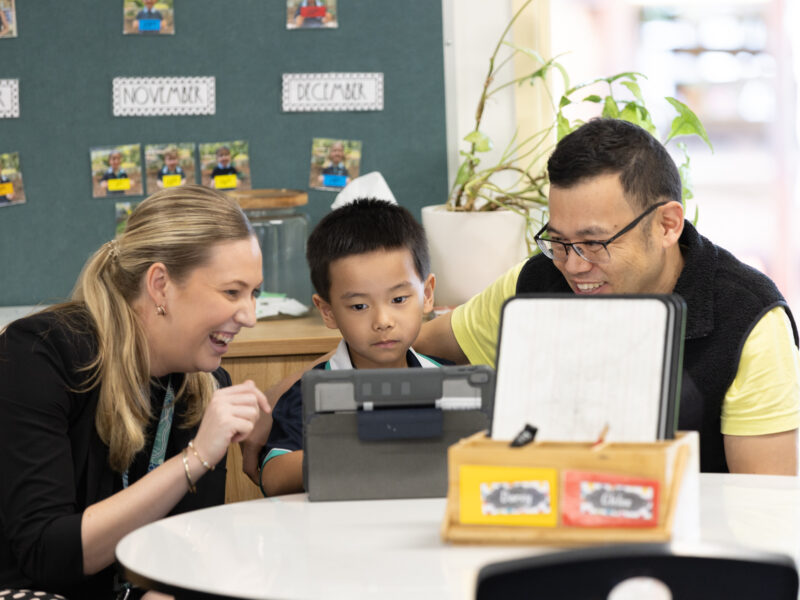
PREP LEARNING IN ACTION | Coding Technology
Parents learned from Mr Andrew Garrett, Prep Primary Teacher and Ms Kim Letts, (IT Specialist Teacher) about the thoughtful implementation of technology into our students' learning journey at Flinders.
Mrs Bain touched on implementation values that underpin how we use technology in the classroom. We see technology as a tool for creation and learning, not entertainment and consumption. Our evidence-informed approaches are amplified by curated technology platforms and tools.
Ms Letts shared the technology tools commonly used in Prep. These screen-free tools support the development of early coding concepts, but also develop essential cognitive and social skills, such as problem solving, critical thinking and collaboration, while also building their memory with repetition and feedback. This all helps to lay a strong foundation for lifelong learning.
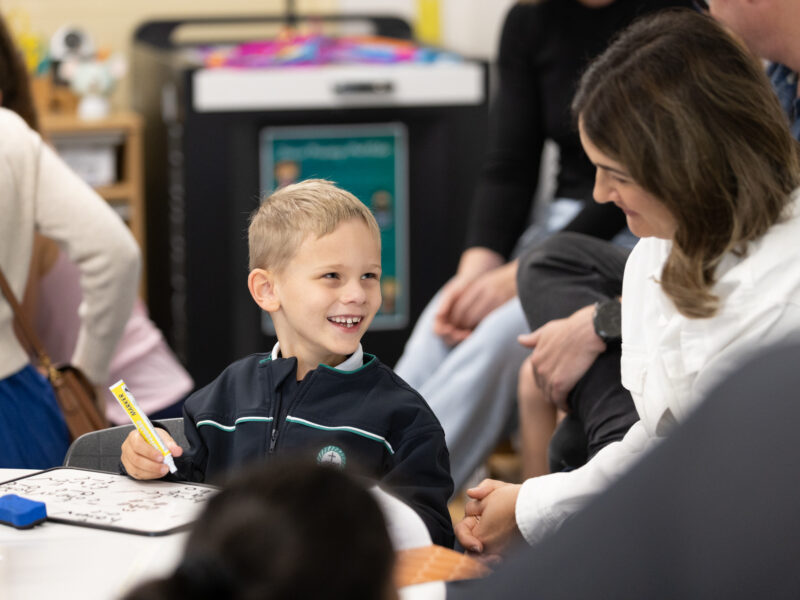
YEAR 1 LEARNING IN ACTION | Phonics and the Science of Learning
Year 1 parents engaged in a phonics lesson and learned the Science of Learning research behind what they were observing. Year 1 Teacher Mrs Annie Khoury explained how graphemes and phonemes are fundamental units of language that play a crucial role in reading, writing and speaking.
Mrs Khoury explained how our teachers guide students in moving these concepts from their short-term processing to their long-term memory, which is key to developing literacy skills and maintaining language fluency. Long-term memory is also essential for enabling critical reading.
Mrs Khoury is passionate about this topic, having last year been invited to present as part of the National Education Summit 2024.
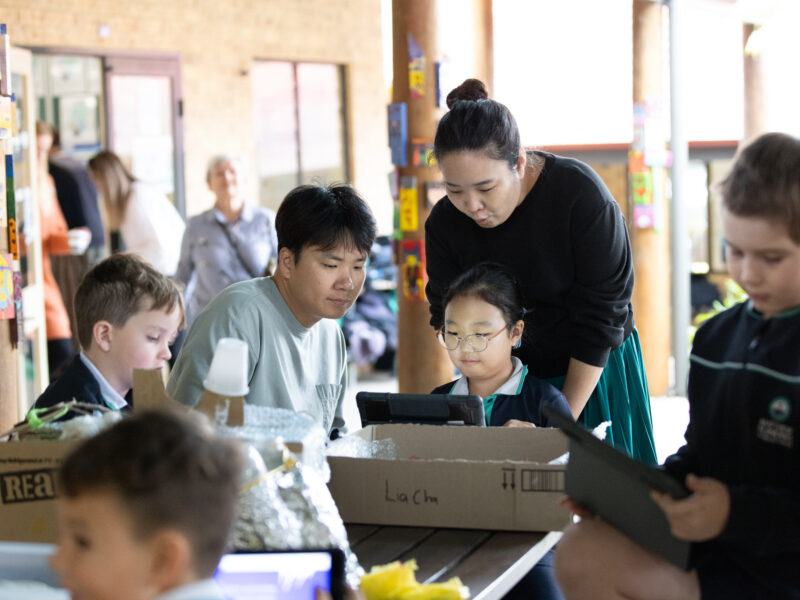
YEAR 2 LEARNING IN ACTION | i-Impact Art Show
Students were excited to have parents and carers visiting to view their unique artworks created from recycled materials as a way of transforming trash into treasure! The artworks are designed as part of the students’ i-Impact design thinking unit, and each piece aims to inspire positive change and raise awareness about protecting our environment, especially our waterways.
Year 2 Teacher Mrs Helen Ottaway guided parents through the value of the i-Impact program, which encourages students to build skills and character in problem-solving, teamwork and communication skills. As students collaborate on projects, they learn to share ideas, respect differing opinions, and work towards common goals.
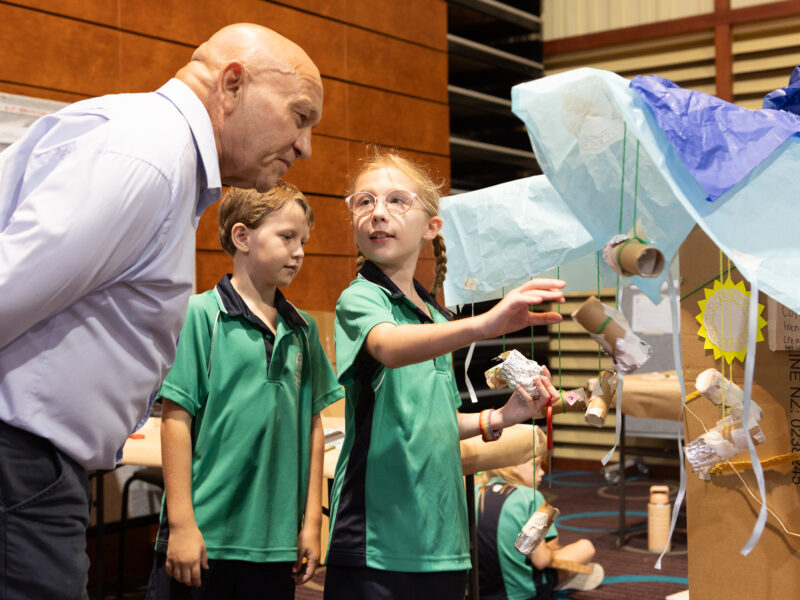
YEAR 3 LEARNING IN ACTION | The Design Ascent Playground Challenge (i-Impact program)
In April, our entire Year 3 cohort engaged in the two-day Flinders Design Ascent, an immersive milestone event as part of their i-Impact human-centred design thinking curriculum.
The Design Ascent invited the Year 3 students to tackle a real-world challenge: “How might we design and construct a unique playground suitable for Years 2-4 students that is safe, inclusive, challenging and exciting?”
Visit the full story here, including a wrap-up of the Learning in Action event for parents.
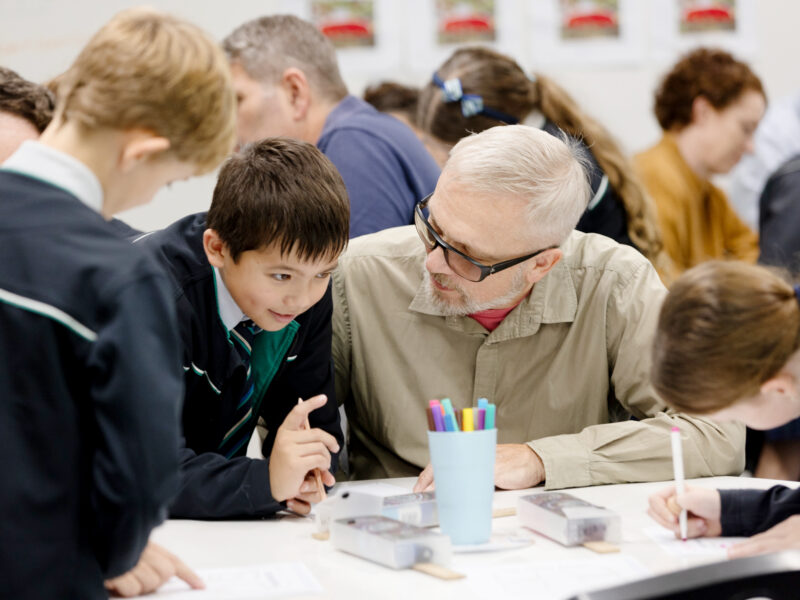
Year 4 LEARNING IN ACTION | First Nations Culture (i-Impact program)
Year 4 parents learned how students have delved into their Term 2 i-Impact design thinking unit focused on First Nations culture, particularly of the Kabi Kabi/Gubbi Gubbi peoples, who are the Traditional Custodians of the Land upon which Flinders is built.
Parents were presented with an understanding of the design thinking process and were engaged in a meaningful reflection of the concepts of family values and legacy. Students and parents showcased innovative ideas aimed at creating a lasting legacy for their families and developed prototypes that were thoughtfully aligned with core personal and familial values.
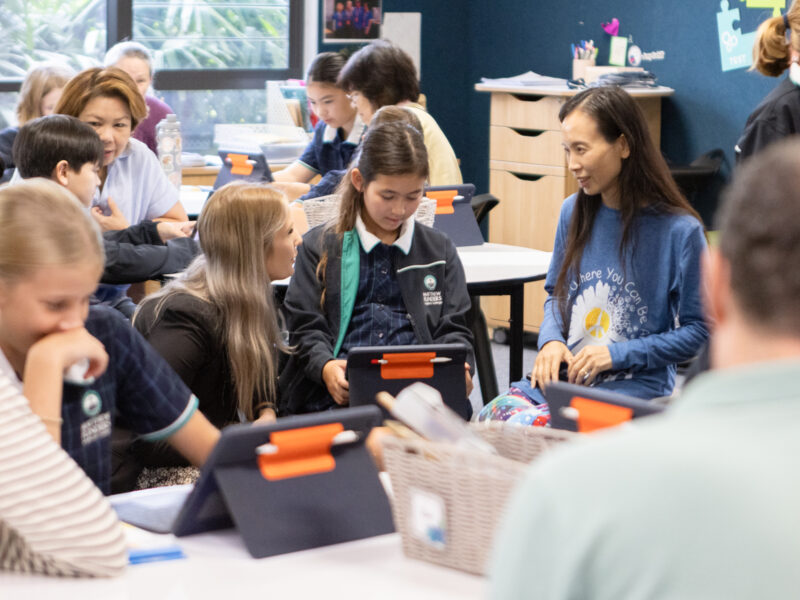
YEAR 5 LEARNING IN ACTION | Design thinking and game design (i-Impact program)
The Learning in Action for Year 5 parents explored how students embrace “design sprints” at a certain stage of their human-centred design thinking journey to ideate innovative solutions to futuristic problems. This is all part of Flinders’ i-Impact design thinking program, which is bespoke to the College.
Year 5 Teacher Miss Amy Cahill explained how the Year 5s embarked on an exciting learning experience to understand and teach the principles of democracy by designing their own educational games.
Miss Cahill shared with parents how human-centered design thinking enhances our students' academic rigor by engaging them in its iterative phases—empathise, define, ideate, prototype, test—and by challenging them to think critically and creatively throughout the process.
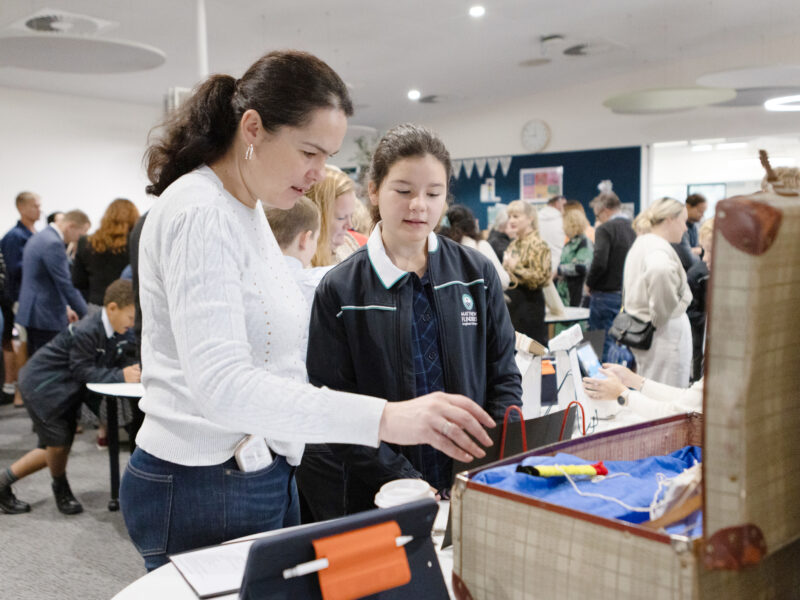
Year 6 LEARNING IN ACTION: The Refugee Journey (i-Impact program)
Parents were invited to be a part of the Year 6 Expo Showcase to experience students’ powerful and thought-provoking multimedia representations of migrant journeys.
It was all part of their i-Impact unit on raising awareness about the challenges of migration and refugee experiences, guided by the question: “As a global citizen, how can you use your voice to amplify the journey of one to raise awareness about the challenges of many?”
Year 6 teacher Mr Andrew MacRae explained to parents how this term, students have explored migration to Australia through the lens of civics, history, geography and human-centered design thinking.
From Australia’s journey to Federation to the diverse migration stories shaping our nation, students have empathised with and investigated push and pull factors, compared global geographies and examined refugee experiences after hearing from refugees who visited the Year 6 cohort to share their stories.
Through these inquiries, students engage deeply with the learning and develop the ability to think critically, creatively and responsively in regards to their place within society, as they analyse and interpret historical events and geographical interconnections.
